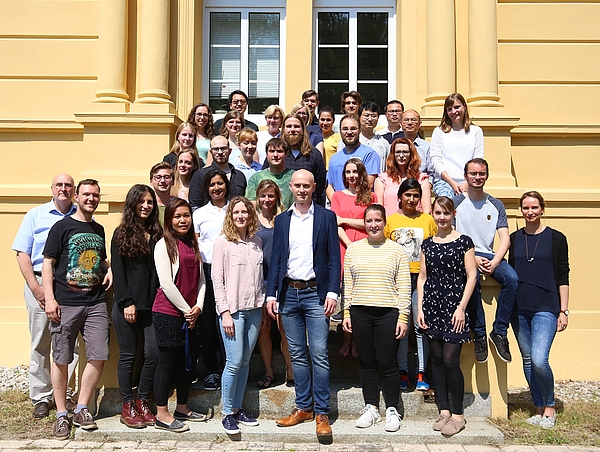Dear visitors and patients,
welcome to the homepage of the Section for Translational Neurodegeneration "Albrecht Kossel" of the Department of Neurology at the University Medical Center in Rostock.
The section consists of several research groups, which deal with basic scientific questions about the development and pathophysiology of neurodegenerative diseases (e.g. amyotrophic lateral sclerosis, Niemann-Pick type C, Wilson's disease), as well as with clinical questions and modern concept of patient centered care and the transfer of new findings from basic science into clinical practice (e.g. for improved diagnostics or the therapy of neurodegenerative diseases) and vice versa.
We combine long standing traditions of neuroscientific research at the Rostock University Medical Center by working on neurodegenerative diseases with up-to-date human stem cell-based cell systems. This mainly includes the use of patient-specific models and the development of individualized therapeutical strategies for neurodegenerative diseases.
Thank you for your interest in our work!
Yours sincerely,
Prof. Dr. Dr. Andreas Hermann, Section head
International Parkinson and Movement Disorder Society
Special Series: Approach to patients with genetic choreas (Prof. Emilia Gatto & Dr. Kevin Peikert)
We are a supporting partner of the European Rare Disease Network (ERN-RND)
European reference network (ERN):
www.ern-rnd.eu


![[Translate to English:] Foto Podcast](/fileadmin/_processed_/7/d/csm_ALS-Podcast__29_Stammzellen_bei_der_ALS_mit_Prof._Dr._Andreas_Hermann_Thumbnail_20230627_8e72806394.jpg)
![[Translate to English:] Buchveröffentlichung](/fileadmin/_processed_/c/c/csm_Flyer_Buch_7329ac34c2.jpg)
![[Translate to English:] Buchveröffentlichung](/fileadmin/_processed_/e/5/csm_Flyer_5._Auflage_Diagnostik_und_Therapie_neurologischer_Erkrankungen_dcdddfd946.jpg)